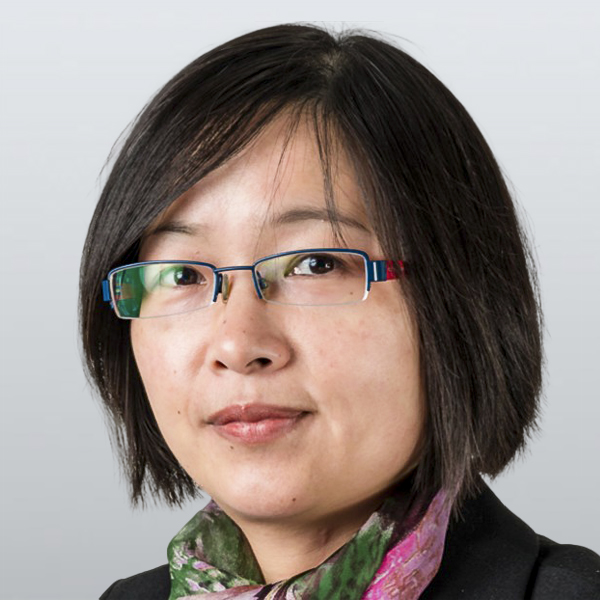Australians View the Chinese Regime Negatively but Not the Chinese People: Survey
Distressed Patriotic Flag Unisex T-Shirt - Celebrate Comfort and Country $11.29 USD Get it here>>

According to Pew Research Center, despite the worsening relations between Australia and China, most Australians hold negative views toward the Chinese regime rather than its people.
The survey report released on Sept. 26 asked Australians to describe—in their own words—the first thing that comes to mind when they think of China. The researchers analyzed the 1,127 responses received while focusing on the most frequently mentioned topics.
Among the top mentioned subjects, “China’s political system” was the first that came to mind among 29 percent of Australian adults, with some respondents directly critiquing the Chinese regime, describing it as a “threat to the rest of the world” or a “totalitarian one-party state.”
One Australian woman described China as “a country that ignores rules and gets away with it, a country that wants to dominate the world, [and] a bully that has used Australia as an example to other countries that if you cross them, they will punish you.”
While the Chinese regime received largely negative evaluations from the respondents, only 1 percent expressed negative views of the Chinese people compared with the 4 percent that described them in a positive light, the report states.
Relations between Australia and China began to deteriorate in 2018 due to growing concerns about Chinese influence in Australian politics, media, universities, and various critical sectors. The two nations’ relations worsened in 2020 when Australia called for an investigation into the origins of the coronavirus, to which China responded by imposing new tariffs.
Amid an ongoing trade dispute with China since 2020, the survey results indicate that most Australians sensibly direct their negative evaluations toward the regime in Beijing instead of Chinese citizens.
Different Public Perception Toward Wealthy Chinese
Although Australia’s public opinion showed more acceptance toward the Chinese people in general, recent calls to scrap the country’s Significant Investor Visa (SIV) program painted a different perception of the public’s opinion toward wealthy Chinese immigrants, who paved their way into the country using money.
The Australian government said it is all but certain to scrap the Significant Investor Visa (SIV) program, a money-based, fast-tracked path to Australian permanent residency where 84.9 percent of visas issued were granted to high-net-worth Chinese between 2012 and 2020.
SIV applications require no English test, age limit, or business skills assessment. The main criterion is to invest 5 million Australian dollars in certain Australian investments, such as balanced funds, and maintain investment activity in the country.
The program was established in November 2012 by former Prime Minister Julia Gillard, providing a pathway for significant investment from immigrants into Australia under the Business Innovation and Investment Visa program.
SIV applications are usually approved within one year. In addition, family members such as spouses and children under 18 can be included in the principal applications.
According to the Department of Home Affairs, from July 1, 2019, to June 30, 2020, 84.8 percent of the visas were granted to applicants from mainland China, which was also the lowest percentage since 2012.
From November 2012 to June 2015, 90.1 percent of the visas were granted to those from mainland China.
The controversial program has sparked many concerns and discussions over the past several years.
A Controversial Program
Chinese billionaire Huang Xiangmo lost his visa in December 2018 after being granted permanent residency. According to The Australian, a local newspaper, he was one of only a few whose visa was canceled on character grounds citing the “reliability of answers” he had provided.
Australian security agencies reportedly had serious concerns about his links to the Chinese Communist Party (CCP) and his alleged donations to certain Australian political officials.
The move to cancel Huang’s visa was labeled as “Canberra’s most aggressive move so far to push back against China’s campaign of influence in Australia,” according to The Australian Financial Review (AFR).
Huang had donated large sums of money to both sides of the political aisle in Australia over five years and was seen attending functions with top Labor and Liberal Party figures.
However, Huang had denied the allegations of influencing the Australian political process, according to the AFR report.
“I think most Australians would be pretty offended by the idea that we’ve got a visa category here where effectively you can buy your way into the country,” Minister of Home Affairs Clare O’Neil told Sky News on Sept. 11.
O’Neil also mentioned that the SIV program could be axed after the immigration system review due in February 2023, as most granted with the SIV arrive to settle down and retire, which “generally end up being a drain on Australia’s budget.”
“At the moment, I can’t see a lot of reasons to maintain it as part of our program,” she added.
Debate Over Future of Visa Program
Although O’Neil said the SIV had become a problem for the immigration system, Feng Chongyi, an associate professor at the University of Technology Sydney, argued that revising the SIV application requirements is a better path.
“It’s difficult for businesspeople to be clean-handed in the controlled business environment monitored by the CCP, but not all of them are cutthroat by nature. It would be a shame if the Australian government decided to ban the SIV. Revising the SIV application requirements is a better solution,” Feng told The Epoch Times.
“Private businesses in China have contributed to people’s livelihoods domestically, such as employment. Although these businesspeople don’t have a good image in the eyes of the public for being closely tied to the CCP, we should leave them a way to be out of China if they choose to cut ties with the CCP.”
Feng argued, “there should be a way out even for the CCP officials if they are looking for a change.”
On the other hand, Abul Rizvi, former deputy secretary of the Department of Immigration, wants to see the SIV abolished, The Australian reported.
“In a regime like China, people who are rich and well-connected probably don’t have a criminal record even if they may have done various nefarious things,” Rizvi said.
The report added that 2,370 “super-rich” Chinese nationals had been granted primary visas and brought over 5,000 family members to Australia.





